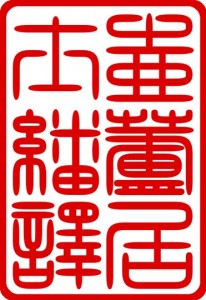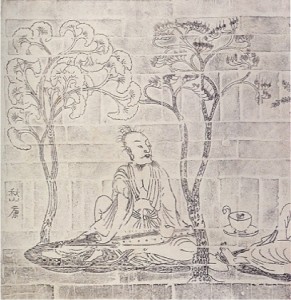Discourse on the Selflessness of the Superior Man
Xi Kang of the Wei Dynasty
Discourse on the Selflessness of the Superior Man
The heart of the Superior Man is indifferent to right and wrong, yet his conduct does not stray from the Dao. Why is this? When the vital essence is still and the mind is empty, the heart is devoid of conceit. In a person of natural quality and spiritual accomplishment, his inner being is detached from worldly desire. Devoid of conceit, the heart is able to transcend moral doctrine and trust its own nature. When the inner being is detached from worldly desire, high and low are judged impartially and the nature of things is understood. When the nature of things is fully realized, then the Great Dao is inviolate and whole. When moral doctrine is transcended and the heart is untrammeled, then right and wrong are irrelevant. Thus, it is said that the Superior Man embraces detachment and praises the understanding of things…
Empty minded and indifferent: this is the way of the Superior Man. Thus, it was said [in the book] of the Great Dao, “When I have no body, I have no concerns.” Those who reject worldly matters are worthy of esteem. From this perspective, the heart of the accomplished adept thus harbors no attachments. So it was said, “the path of the Superior Man is to relinquish the body.” Indeed, this is true. The way of the Superior Man is virtuous. He does not ruminate over rules of conduct and then act. Intuitively, he trusts his heart and does not dwell on the approved or the proper. True being is selflessly disinterested, regardless of appropriateness or consequence. This is to freely abandon regard and concern for social convention. By spontaneously trusting the heart, the heart and courtesy are one. When there is indifference, all things are equal.
魏 嵇康
君子無私論
夫稱君子者 心不措乎是非
而行不違乎道者也 何以言之
夫氣靜神虛者 心不存于矜尚
體亮心達者 情不系於所欲
矜尚不存乎心 故能越名教 而任自然
情不系於所欲 故能審貴賤 而通物情
物情順通 故大道無違
越名任心 故是非無措也
是故言 君子則以無措為主 以通物為美…
虛心無措 君子之篤行也
是以大道言 及吾無身 吾又何患
無以生為貴者 是賢於貴生也
由斯而言 夫至人之用心 固不存有措矣
故曰 ‘君子行道 忘其為身 斯言是矣
君子之行賢也 不察於有度而後行也
任心無邪 不議於善而後正也
顯情無措 不論於是而後為也
是故傲然忘賢 而賢與度會
忽然任心 而心與善遇
儻然無措 而事與是俱也
Source
Xi Kang 嵇康 (a.k.a. Ji Kang, 223-262 A.D.), “Jünzi wusi lun 君子無私論 (Discourse on the Selflessness of the Superior Man),” Jinshu 晉書 (Book of Jin Dynasty, 648 A.D.), Fang Xüanling 房玄齡 (579-648 A.D.) and Chu Suiliang 褚遂良 (596-658 A.D.), comps. (Taipei: Dingwen shuchu, 1980), ch. 49, no. 19, p. 1373.
Figure
Artist unknown
Portrait of Xi Kang 嵇康 (223-262 A.D.)
Zhulin qixian yu Rong Qiqi 竹林七賢與榮啟期
(Seven Sages of the Bamboo Grove and Rong Qiqi), 5th century
Ink rubbing: ink on paper, detail
Stamped brick murals
Southern Dynasties: Eastern Jin dynasty
Xishanqiao, Nanjing, Jiangsu
Nanjing Museum


